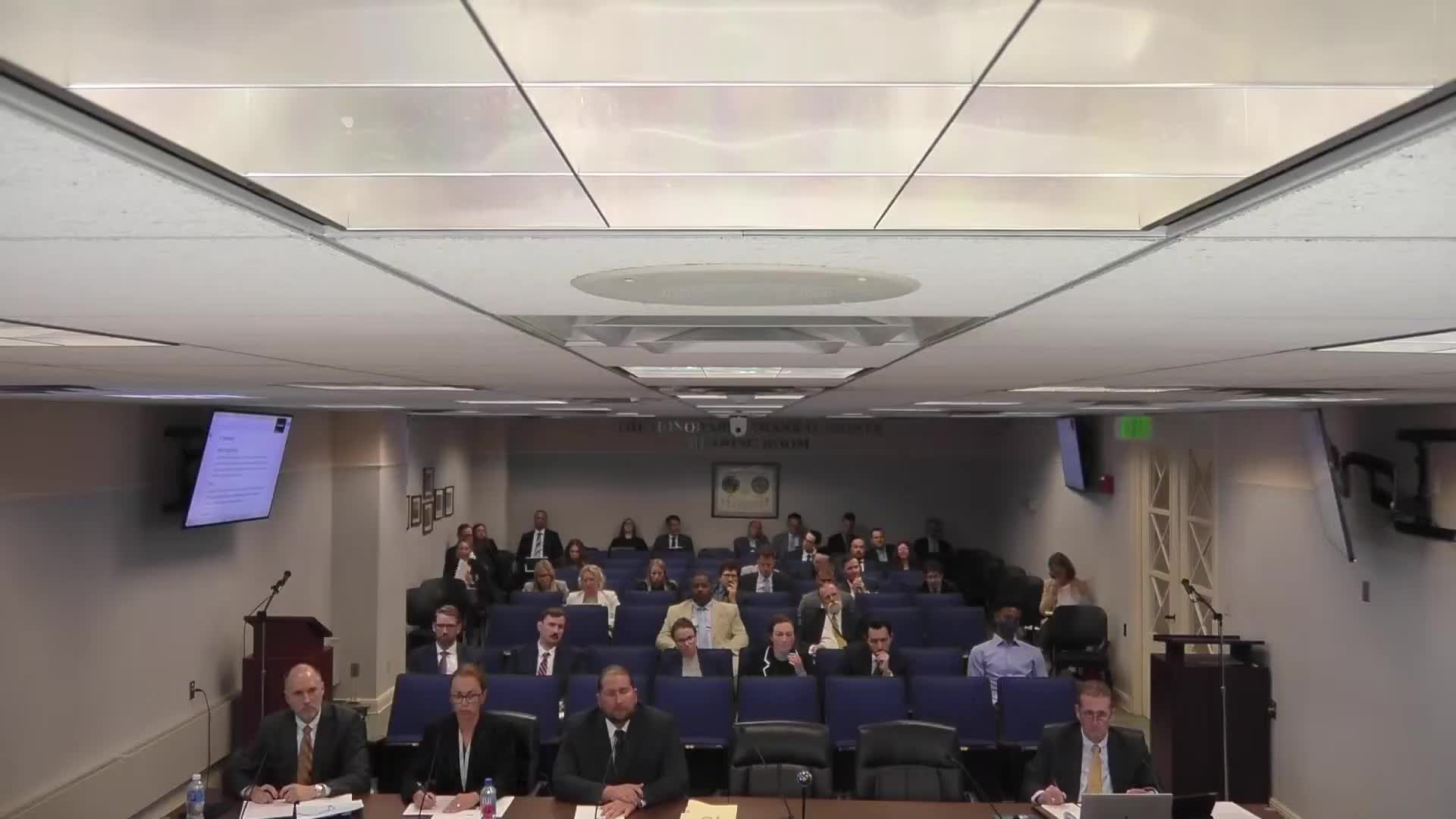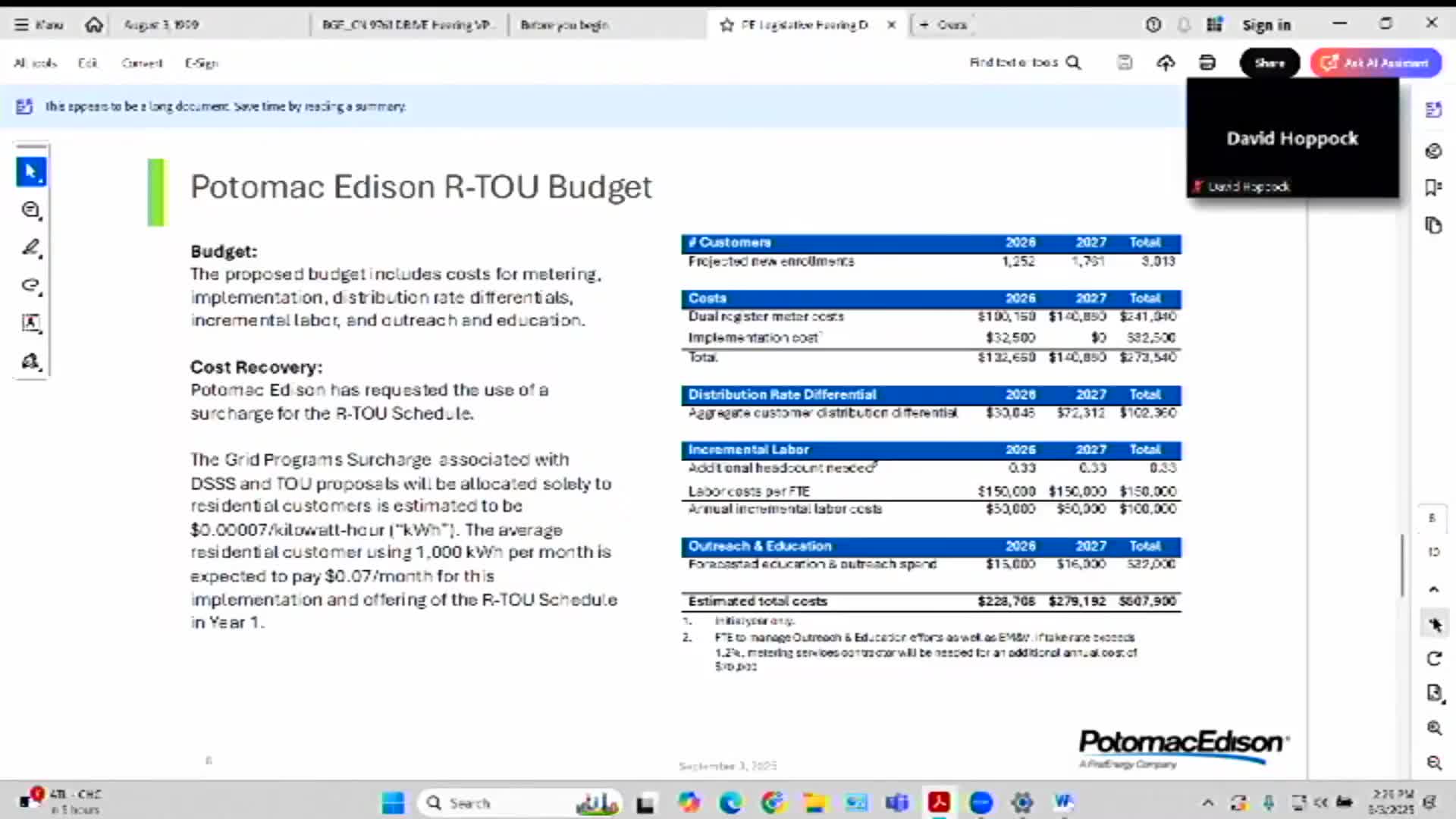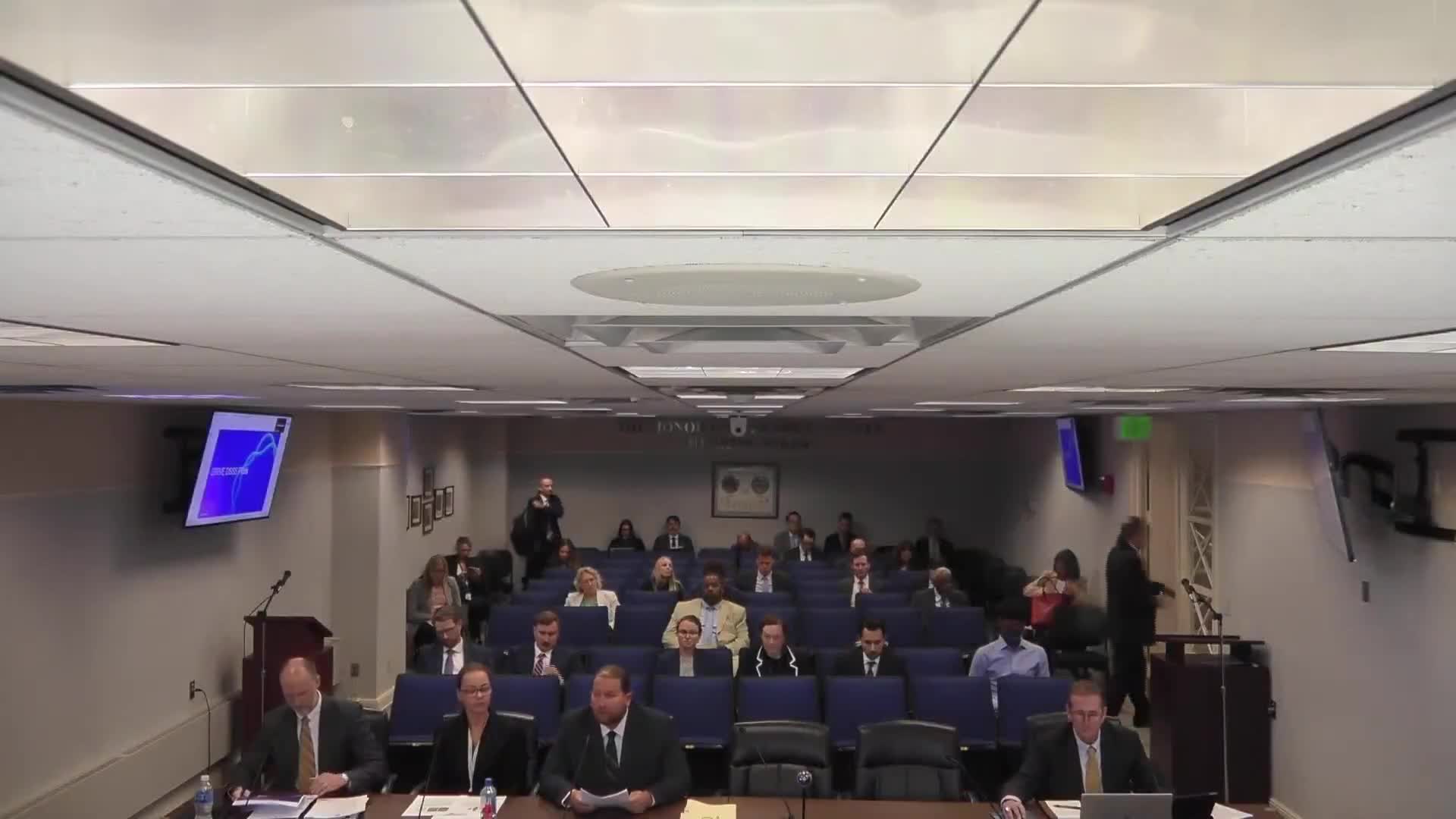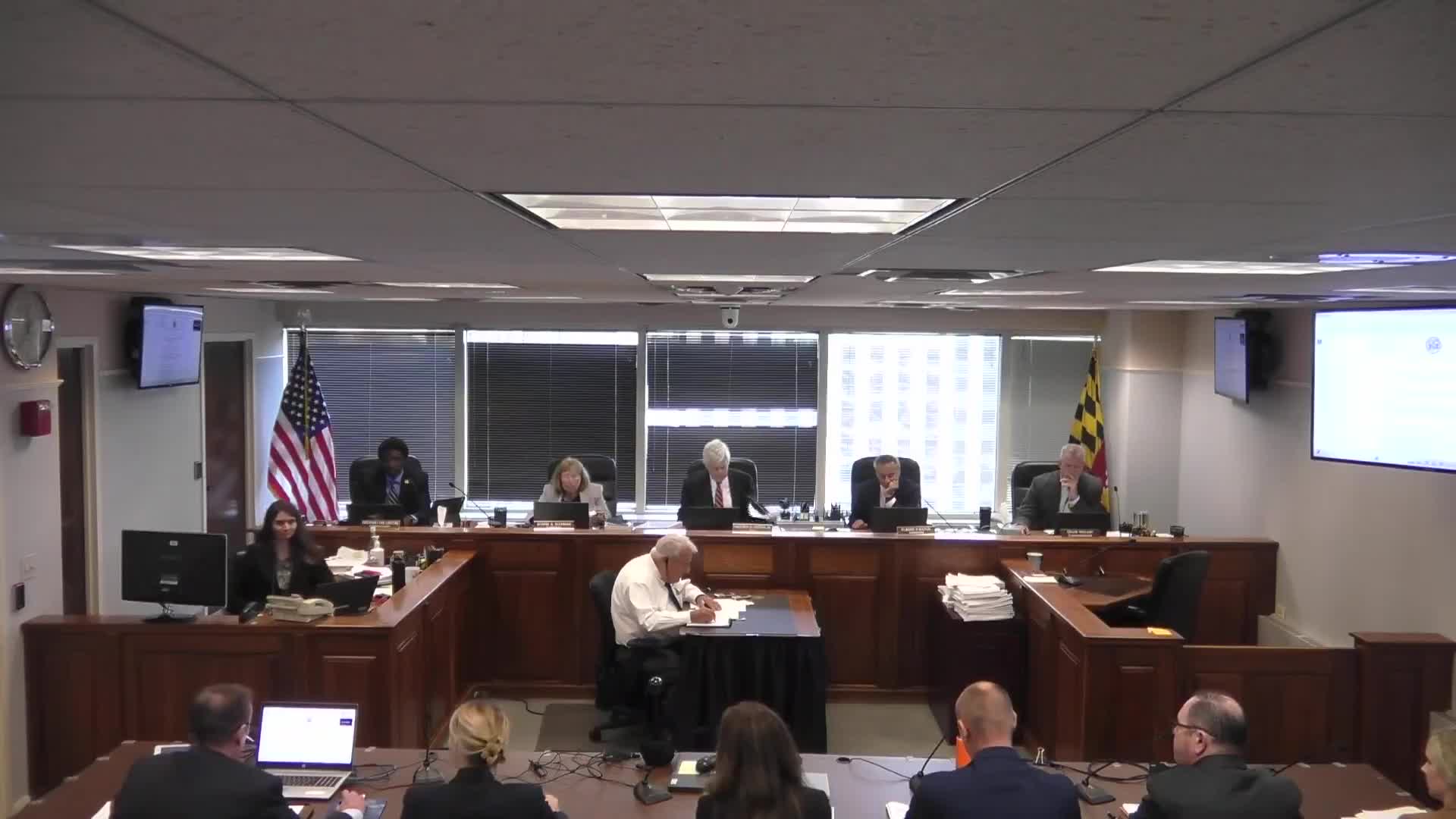Article not found
This article is no longer available. But don't worry—we've gathered other articles that discuss the same topic.

Stakeholders press PSC on aggregators, equity, measurement and scale for DRIVE Act pilots

Potomac Edison seeks limited two‑year BYOD pilot and TOU meters for customers lacking AMI

Pepco and Delmarva propose three‑year VPP pilots and expanded TOU outreach; seek regulatory asset recovery

